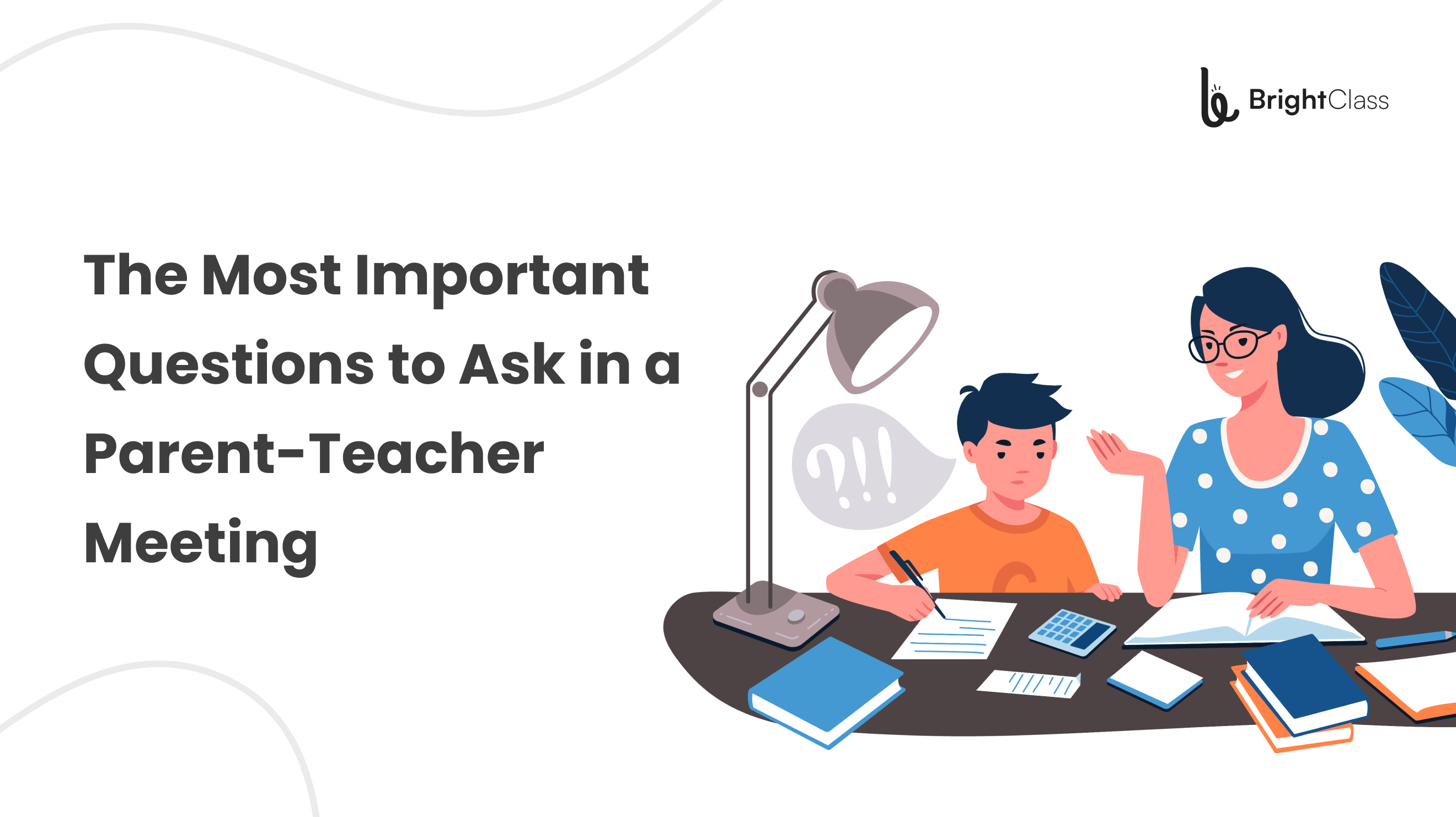
The Most Important Questions to Ask in a Parent-Teacher Meeting
Parent-teacher meetings extend beyond academic updates, offering a
unique opportunity for parents to gain profound insights into their
child's holistic development. With children spending a significant
portion of their time at school, teachers become invaluable
observers of academic progress, peer relationships, and behavioral
nuances. These meetings are a gateway for parents to tap into this
wealth of information, enabling a deeper understanding of their
child's experiences. By leveraging this knowledge, parents can
provide more comprehensive support, bridging the gap between home
and school to nurture their child's overall well-being and success.
Asking the right questions during Parent-Teacher Meetings (PTMs) is
crucial for fostering a meaningful and collaborative partnership
between parents and teachers. These inquiries provide parents
valuable insights into their child's education, including academic
progress, social and emotional development, and overall well-being.
In this short read, we shall understand the important questions to
ask in a PTM and what to expect. By posing thoughtful questions,
parents can align their expectations with the school's, tailor
support strategies to meet their child's specific needs, and address
any concerns that may arise. Asking thoughtful questions that
effectively communicate helps recognise accomplishments, encourages
openness in the educational process, and guarantees that parents are
involved in their child's academic journey. Ultimately, the
importance of asking the right questions lies in establishing a
strong foundation for collaboration between home and school,
creating an environment where children can receive the tailored
support necessary for their academic and personal growth.
Top Questions to Ask at PTM
Questions about your child:
1. What strengths do you observe in my child?
2. In what areas do you see potential areas for improvement?
3. How would you describe my child's overall mood and behavior at
school?
4. Can you provide insights into my child's general behavior in the
school environment?
5. From your perspective, what talents do you recognize in my child?
Questions about your child's academics:
6. Is my child meeting academic goals according to your observations?
7. Do you believe my child is performing to their fullest potential academically?
8. In which specific areas does my child require extra assistance?
9. How can we best support and provide additional help in those areas?
10. Is there a notable difference in my child's performance across
various subjects?
Questions about your child's social skills:
11. How socially engaged is my child, and what is their interaction style with peers?
12. Are there any communication challenges my child faces with you or others?
13. How do you handle disagreements between my child and classmates?
14. What suggestions do you have for enhancing my child's social
responsiveness and interpersonal skills?
Questions about homework:
15. How is my child managing their homework assignments?
16. Can I express concerns about the school's homework policy with
you?
17. From your perspective, how much daily time should be allocated
to my child's homework?
18. What should I do if I have questions or concerns about homework due the next day?
19. How can I foster my child's interest in completing homework
regularly?
Questions about your involvement:
20. What strategies can I employ to encourage my child to study and complete assignments at home?
21. How can I actively contribute to helping my child achieve their academic goals?
22. In what ways can I cultivate my child's interest in a subject
they may avoid studying?
23. How can I assist in preparing my child for tests and examinations?
24. How can I support and reinforce the concepts you are teaching my child at school?
Questions about specific situations involving sensitive issues:
25. Am I able to discuss some concerns I have regarding my child?
26. Can you provide insights into a particular situation that occurred?
27. Could you outline your teaching methods and philosophies for me?
28. Do you have advice on how to address a specific situation or issue?
29. Can you assist me in tackling a particular problem involving my child?
Conclusion
The fundamental building block for a child's comprehensive development is efficacious communication between educators and patrons. By posing thoughtful questions encompassing various aspects of a child's academic and social life, parents can glean valuable insights into their child's world beyond the classroom. Understanding strengths, weaknesses, and social dynamics empowers parents to provide targeted support, creating a harmonious partnership between home and school. Addressing concerns proactively, fostering a positive homework environment, and actively participating in a child's academic journey are essential components of parental involvement. Moreover, navigating sensitive issues with open dialogue and collaboration ensures a nurturing educational experience. Ultimately, the collaborative efforts of parents and teachers lay the foundation for a child's success, both academically and personally, fostering an environment where they can truly thrive.